#the canterville ghost 1974
Text

David Niven in The Canterville Ghost (1974)
85 notes
·
View notes
Text

Alexander Knaifel
Russian composer whose sparse musical landscapes create a spiritual ambience of meditative calm
Alexander Knaifel, who has died aged 80, did not set out to be a composer. As a student in the 1960s, he studied the cello with Mstislav Rostropovich until injury intervened. Then he redirected his energies towards composition, at a time when the Khrushchev thaw could accommodate the musical modernism of the Soviet Union’s second avant-garde period (the first having come in the years around the 1917 revolution).
But the cello retained a significant role in Knaifel’s output. Rostropovich went on to commission and premiere three religious works that reflected both Knaifel’s adoption of Russian Orthodox Christianity around 1970 and his conviction, which appealed to Rostropovich, that experience can be heightened by performers thinking – “silently intoning” – a text as they playe the music.
Chapter Eight – Canticum Canticorum (The Song of Songs, 1993), a work “for church, choirs and cello”, unfolds slowly over the course of an hour. With three a cappella choirs adopting a cross formation in Washington National Cathedral in the US, the premiere was recorded for the Teldec label and released under the title Make Me Drunk With Your Kisses (1995).
The Fiftieth Psalm (1995) is for solo cello. Psalm 50 in the Orthodox numbering is Psalm 51 in the west: Miserere/Have Mercy. With his concern for “playing as if singing”, Knaifel felt that “only Rostropovich could articulate this text”, and his recording of it was released on the ECM label in 2005.
Blazhenstva (1996) is a meditation on the Beatitudes, Jesus Christ’s sermon on the mount. Rostropovich’s last cello student, Ivan Monighetti, later recorded it with Knaifel’s wife, Tatiana Melentieva, as the soprano soloist with the State Hermitage Orchestra from St Petersburg for another ECM release.
That 2008 recording also features Monighetti playing a piece in the modernist style that preceded Knaifel’s more ethereal approach, his Lamento for Solo Cello (1967, revised 1986). Built upon serialist tone rows, and with a striking approach to timbre and performance techniques, it is also highly expressive.
From the same period came his Monody for Female Voice (1968), again written in a modernist style, with modal phrases juxtaposed with glissandi descending in quarter-tones and wide intervals. Premiered by Melentieva, it was written with her crystal-clear tone and extensive vocal range in mind.
Knaifel first made his mark with the opera The Canterville Ghost, given a semi-staged student production in 1966, at the end of his studies at the Leningrad Conservatory. Based upon the humorous ghost story by Oscar Wilde, it was taken up by the Kirov Orchestra under Alexander Gauk in Leningrad in 1974 and the BBC Symphony Orchestra under Gennady Rozhdestvensky in London in 1980. A 1990 recording with Michail Jurowski directing the Moscow Forum Theatre, reissued on Brilliant Classics in 2012, brings out the young composer’s confident delivery of musical humour and mastery of orchestration.
In Knaifel’s more ascetic and contemplative works, solo lines and single sustained pitches are spun out over long durations – sometimes over the course of two hours – almost to the point of stasis. In the more minimalist language of what he called his “quiet giants”, he was ahead, among Soviet composers, of either Giya Kancheli or Arvo Pärt, in presenting pared-down content that is rich in spiritual ambience. There is no obvious parallel to Knaifel’s music in the west, although it bears some similarity in style to that of the American composer Morton Feldman.
Of two large-scale works from the 1970s, Knaifel said: “In Jeanne, I discovered the number, in Nika, the word.” He reworked a Joan of Arc ballet into Jeanne, Passion for 13 Instrumental Groups (1978), a work of extreme asceticism drawing on the principle that the universe is built on numbers and proportions with rational and symbolic power, while Nika, 72 Fragments for 17 Performers on Bass Instruments (1974), was the first of his works to use unspoken texts.
Agnus Dei for Four Instrumentalists A Cappella (1985), with a characteristically paradoxical title, is powerful in impact given its sparse musical landscape and the sense of meditation that this creates. It utilises a wide range of literary examples, ranging from the liturgical to quotations from the diary of a young girl, Tanya Savicheva, who died during the siege of Leningrad.
These texts, printed in the score as well as in the audience’s programme notes, are never heard in performance, with the musicians being instructed to “think the text” as they play. Knaifel maintained that the word does not needed to be explicitly stated for the work’s spiritual intention to be understood.
His compositions of the 1990s and beyond increasingly displayed a religious aesthetic and an even more ascetic musical language. Texts both secular and sacred were present, but, in line with the Gnostic tradition, Knaifel asserted that “truth” must be hidden and revealed gradually to the listener in order for it to have validity.
This approach found its fullest and most original expression in In Air Clear and Unseen (1994), for texts by Fyodor Tyutchev, piano and string quartet, with its extremes of register, periods of silence, silent intonation, religious symbolism and virtuosic performance techniques. A recording by the pianist Oleg Malov and the Keller Quartet was released on ECM in 2002.
Knaifel’s opera Alice in Wonderland, premiered in Amsterdam in 2001 with a cast including the baritone Roderick Williams, has a libretto based upon Lewis Carroll’s narrative. But the text is rarely sung, instead being either mimed, or even in a few instances, coded visually, through coloured lights playing on a backdrop on stage.
Born in Tashkent, Uzbekistan, Alexander was the son of Russian-Jewish parents: his father, Aron Knaifel, a violinist, and his mother, Muza Shapiro, a music theory teacher, had been evacuated from Leningrad at the time of the siege. From the Leningrad Central Music School (1950-61) he went on to the Moscow Conservatory, where his cello studies under Rostropovich were ended by a nerve inflammation in his left hand. At the Leningrad Conservatory (1963-67) he studied composition with Boris Aparov, a student of Shostakovich.
In 1979, Knaifel was blacklisted by the Soviet authorities as one of the “Khrennikov Seven”, including Edison Denisov and Sofia Gubaidulina, following the premiere in Cologne of his improvised piece A Prima Vista (1972), attracting the ire of Tikhon Khrennikov, leader of the Union of Composers of the USSR.
Knaifel turned his attention to writing film scores, written in a more conventional idiom. There were 40 in all, including those written for his frequent collaborator, the Russian director Semyon Aranovich.
Working with the composer on preparing a number of written texts for publication led me to appreciate his childlike sense of wonder alongside his warmth and playful sense of humour. This sense of a child’s world was apparent in both the Alice opera and its predecessor, the surrealist song cycle A Silly Horse (1981), of which a recording by Melentieva and Malov was reissued on the Megadisc label in 1997.
Knaifel married Melentieva in 1965. She survives him, along with a daughter and a grandson.
🔔 Alexander Aronovich Knaifel, composer, born 28 November 1943; died 27 June 2024
Daily inspiration. Discover more photos at Just for Books…?
8 notes
·
View notes
Text
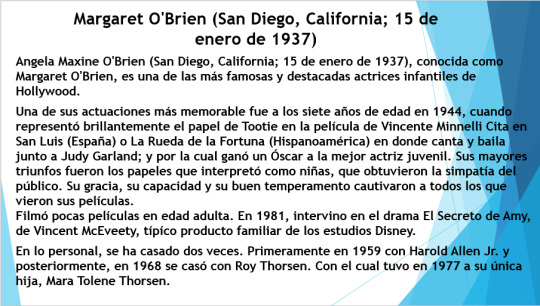
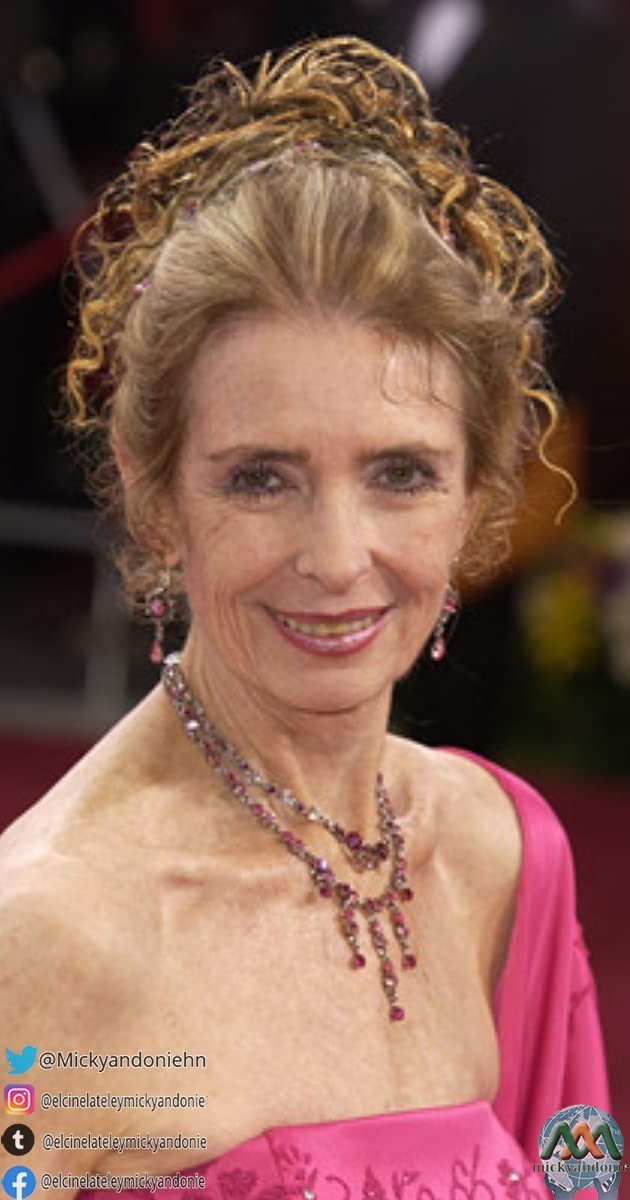


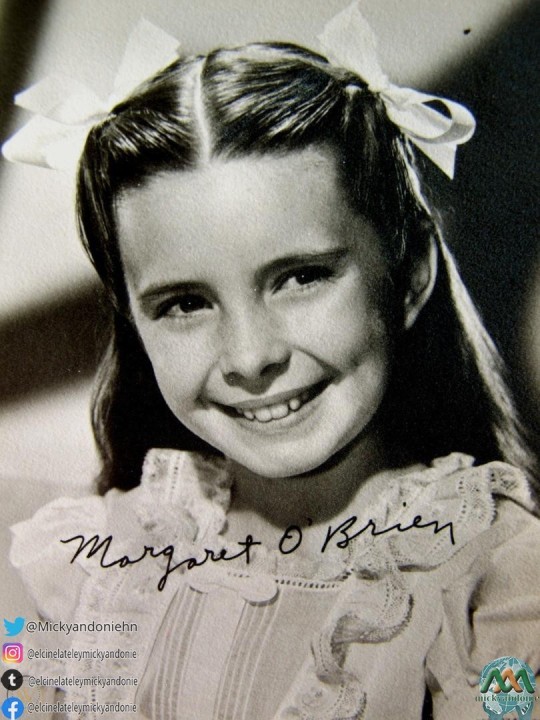
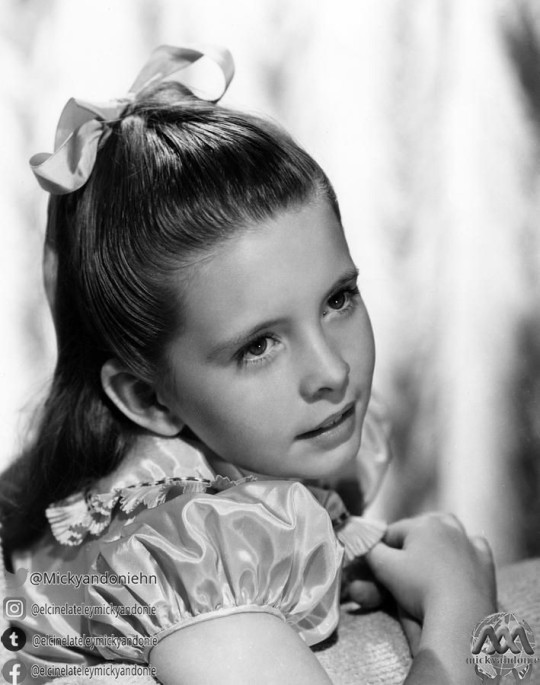
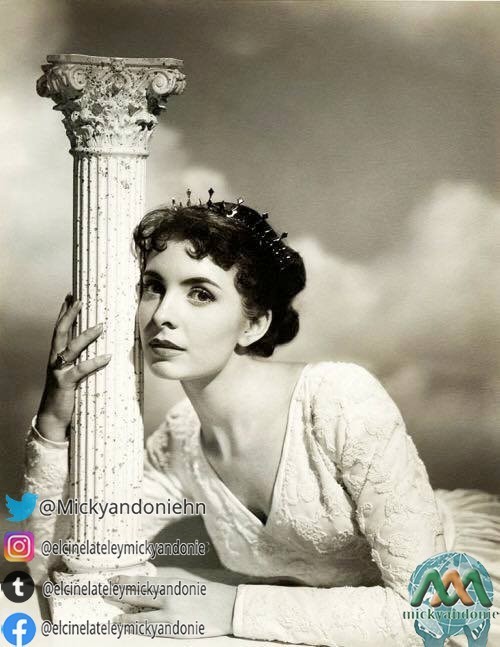

Margaret O'Brien.
Filmografía
1941 Chicos de Broadway (Babes on Broadway)
1942 (Journey for Margaret)
1943 (You, John Jones!)
1943 (Dr. Gillespie's Criminal Case)
1943 El desfile de las estrellas
1943 Madame Curie (Madame Curie)
1943 ... (Lost Angel)
1944 Alma rebelde (Jane Eyre)
1944 El fantasma de Canterville (The Canterville Ghost)
1944 Cita en San Luis (Meet Me in St. Louis)
1944 Al compás del corazón
1945 El sol sale mañana
1946 Bascomb, el Zurdo (Bad Bascomb)
1946 ... (Three Wise Fools)
1947 La danza inconclusa (The Unfinished Dance)
1948 ... (Big City)
1948 ... (Tenth Avenue Angel)
1949 Mujercitas (Little Women)
1949 El jardín secreto (The Secret Garden)
1951 ... (Her First Romance)
1952 ... (Futari no hitomi)
1956 ... (Glory) Clarabell Tilbee
1960 El pistolero de Cheyenne (Heller in Pink Tights)
1965 Operación Rubí Negro
1974 ... (Annabelle Lee, o Diabolique Wedding)
1974 Érase una vez en Hollywood (That's Entertainment!)
1981 Walt Disney Productions El secreto de Amy (Amy)
1996 ... (Sunset After Dark)
1998 ... (Creaturealm: From the Dead)
2000 ... (Child Stars: Their Story)
2002 ... (Dead Season)
2004 El misterio de Natalie
2005 ... (Boxes) Margaret
2006 ... (Store) Margaret
2009 ... (Dead in Love)
2009-2011 ... (Project Lodestar Sagas.
Premios
1944 Ganadora del Óscar al Intérprete Juvenil
1960 Obsequiada con una Estrella de cine en el Paseo de la Fama de Hollywood. (6606 Hollywood Blvd.)
1960 Obsequiada con una Estrella de televisión en el Paseo de la Fama de Hollywood. (1634 Vine Street.)
1990 Ganadora del Premio Young Artist.
Créditos: Tomado de Wikipedia
https://es.wikipedia.org/wiki/Margaret_O%27Brien
#HONDURASQUEDATEENCASA
#ELCINELATELEYMICKYANDONIE
3 notes
·
View notes
Text
Halloween Specials Youtube Playlist:
WNUF Halloween Special (1987)
Scary Godmother Halloween Spooktacular
(2003)
Scary Godmother: Revenge of Jimmy
(2005)
Elvira's Halloween Special (1984)
Elvira's Halloween Special (1986)
Monster Mania with Elvira
(1997)
Bride of Monster Mania with Elvira
(2000)
The Elvira Show
(1993)
Fangoria's Weekend of Horrors (1986)
Vincent Price's Once Upon a Midnight Scary
Vincent Price's Dracula
(1982)
An Evening of Edgar Allen Poe, starring Vincent Price
(1970)
Horror Hall of Fame, hosted by Vincent Price (1974)
Horror Hall of Fame II (1991)
Halloween with the Addams Family
Halloween with the New Addams Family (1977)
The Night That Dracula Saved Halloween (aka The Halloween that Almost Wasn't)
(1978
Hilarious House of Frightenstein
(1971)
The Midnight Hour (1985)
The Mystery of Dracula's Castle (1972)
The Wickedest Witch (1989)
The Worst Witch
(1986)
The Last Halloween (1991)
Vincent and Frankenweenie
Marc Summers' Mystery Magical Tour (1988)
Weinerville: ”Haunted”
Eureeka’s Castle: “It Came from Beneath the Bed”
The Adventures of Pete and Pete: “Halloweenie”
You Can’t Do That on Television: “Halloween Episode”
Halloween is Grinch Night
Witch's Night Out
Claymation: Comedy of Horrors
The Devil and Daniel Mouse
The Canterville Ghost (1988)
The Pumpkin Who Couldn't Smile
Casper's Halloween Special
Bunnicula the Vampire Bunny
The Trouble with Miss Switch
Miss Switch to the Rescue (1982)
The Great Bear Scare (1983)
Mad Mad Mad Monsters
The Real Ghostbusters: "When Halloween Was Forever"
The Super Mario Bros. Super Show: “Count Koopula”
The Super Mario Bros. Super Show: “Koopenstein”
Monster in My Pocket: “The Big Scream”
Garfield in Disguise
Bobby's World: “The Night of the Living Pumpkin”
Eek the Cat: “HallowEek”
Camp Candy: “Scare Package”
What-a-Mess' Halloween Stories
Tales from the Far Side (1994)
Tales from the Far Side II (1997)
Toonsylvania
Billy and Mandy's Jacked-Up Halloween
Underfist: Halloween Bash
The Grim Adventures of Billy and Mandy: “Wrath of the Spider Queen”
Billy and Mandy's Big Boogie Adventure
Ed, Edd, and Eddy's Boo Haw Haw
Camp Lazlo: “Hallobeanies”
Chowder: “The Spookiest House in Marzipan/The Poultrygeist”
Dracula, Sovereign of the Damned
Happy Tree Friends Halloween-a-Thon
Horror Nights: The Art of the Scare
Travel Channel's America's Scariest Halloween Attractions
Travel Channel’s America’s Scariest Halloween Attractions 2
Halloween Crazier
There are also a couple of other specials, plus some 80's Halloween TV commercial compilations, and a couple of classic videos of the Banana Bus Squad playing some Gmod "scary" maps.
Bonus Playlist: Horror and Halloween-Themed Darkwave, Darksynth, Retrowave, Synthwave, Chiptune, and Lo-fi Hip Hop
Happy Halloween!
166 notes
·
View notes